Between the tent-poles that are ‘She Loves You’ and ‘Smells Like Teen Spirit’ came another wild, wilful call to arms. More tribal in spirit, ‘New Rose’ was neither the sound of a Liverpool audience wowing early Sixties America, nor the arpeggio of a pop star aching for recognition withi n the echelons of grunge, but the sound of a drumbeat hammering listeners into the immediacy, honesty and empowerment Seventies punk heralded. The song - from the whimsical intro to the soaring chorus - is nothing if not triumphant, but it’s far from the only triumph on Captain Sensible’s resumé. By virtue and nature, Sensible has proved himself one of music’s more chameleonic personae, echoing a sensibility that could only come from a place of tremendous honesty. Take his thunderous bass performance on ‘Fan Club’, his galloping guitar style on the jaunty ‘Smash It Up’, the shrill, soulful harmonies on The Damned’s excellent debut, or his very own seminal rendition of the Rodgers and Hammerstein standard ‘Happy Talk’. But prescient as he was in the Seventies and Eighties, Captain Sensible continues to place himself in the near-compulsive need to explore new territory on the recently released ‘Get Back Into The World’. Co-fronted by bandmates Paul Gray and Marty Love, Sensible Gray Cells further the metaphor, showcasing a guitarist on the side-stage, a keyboardist from the backstage, and a singer/songwriter on the front-stage. Pennyblackmusic caught up with the artist to discuss everything from Beatle structures to Covid procedures, while taking the time to ask what someone from Punk Royalty thinks of ...well, Royalty! Pennyblackmusic: The choppy ‘I Married A Monster’ sounds like it was cut from a late Seventies session. Were you hoping to transport listeners back to the decade that started you on your impressive career trajectory? Captain Sensible: We see punk as an extension of Sixties garage music - The Seeds, Pretty Things, Chocolate Watch Band, Lollipop Shoppe, Troggs, Left Banke, all that lovely fuzz, wah and farfisa, and toe-tapping beats accentuated with loadsa tambourine and handclaps. You can’t beat it, it’s what we listen to at home and this album is a mixture of UK punk and the music we bought with our pocket money when kids. PB: Paul Gray’s galloping bass work on ‘So Long’ sounds like it was taken directly from a Country & Western track. Was that a genre the three of you wanted to explore? CS: I’m not a fan of country, it’s tediously predictable, never does anything interesting and along with opera is the least psychedelic music I can imagine. You’d have to ask PG about the bassline - but I can tell you I was giving it my best Jon Lord on that organ solo, which is cranked to the max through a Marshall same as the great man used to on those raunchy early Deep Purple albums. You can have a lot of fun with an organ, and the Damned started early on, plugging a Vox Continental into a fuzzbox on ‘Just Can’t Be Happy Today’. The same organ sounded quite different on ‘Plan 9’ as we shoved it through an MXR Phase 90 pedal for that one. That old Vox got a lot of use, I feel quite bad about boshing it off the Old Grey Whistle Test stage now. Mr Vanian has never forgiven me either, it was his! PB: The jaunty ‘Get Back Into The World’ sounds pleasantly McCartneyian in scope, scale and chorus. Was the Beatle bassist an influence on you, either as a songwriter, singer or musician? CS: Ha ha, close but this is Paul’s attempt at a Kinks vibe. As well as the Beatles, the Sixties had some equally phenomenal writers, and Ray Davies managed to capture the mood of an austere post-war Britain blossoming into the groovy Sixties better than anyone else. As for Macca - any aspiring bass player could do a lot worse than listen to ‘Sergeant Pepper’ on repeat, concentrating on the ingenuity, economy and most importantly the grooves in Paul McCartney’s basslines. But much as I dig the Beatles, to a certain extent they are a curse on songwriters from my generation, those who grew up listening to radio playing Beatles tunes non-stop. Their typical song structure is ingrained in our minds, making it extremely difficult to write any oddball / alternative songs. I have to work bloody hard to veer away from intro, verse, chorus, verse, chorus, middle 8, verse, chorus, fade, which is a formula that works so well it's fairly hard to break out of. PB: Am I correct in guessing that ‘What’s the Point of Andrew?’ is aimed at a nefarious royal? If so, well played! CS: He’s never going to win Mastermind is he, the transparent lying in that TV interview, which in itself was a daft move. The guy’s an obvious wrongun, but then they all are, and I can recall as a youngster having the royals constantly shoved in our faces as an example of how to behave. Well, now we know they’re not better than normal people, not even the same, they’re a bloody sight worse. PB: With its buoyant hook and propulsive drum sound, ‘Black Spider Memo Man’ sounds like a tip to The Kinks’ psychedelic wheelhouse. But where did that idiosyncratic lyric come from? CS: From his brother, another pillock. (See https://en.wikipedia.org/wiki/Black_spider_memos.) This one has been shoving his oar in where it’s not wanted for years, writing to ministers on royal letter-headed paper that he wants this or that done, none of which would be remotely popular with the British people if they knew. Now he’s demanding a ‘Great Reset’ - which sounds suspiciously like it might bankrupt the entire planet. Occasionally I sit down and have a go at writing the perfect pop song, this was the most recent result. It’s tough when you judge your tunes against classics like the Hollies’ ‘King Midas In Reverse’ and Wire’s ‘Outdoor Miner’, but maybe I’ll give ‘Black Spider Memo Man’ 8/10 because it does all the important things reasonably well in nearly all the right places. And you want to play it again straight after…always a good sign. PB: Halfway through the track, ‘DJ With Half a Brain’ really gears up and lets its hair down. Amidst the nimble bass work, fiery guitar patterns and colossal exhibitions of drum prowess, comes one of the album’s most infectious choruses. Was this written to be played live and loud? CS: This song was actually more difficult than the rest to get sounding right because of the little skip in the beat, which needed some Latin-style percussion to settle the groove. The whole song came out of that simple Keefesque verse riff - up the guitar neck in B - but Paul and Martin really drive things on. PB: With ‘Jam Tomorrow’ you turn the clock back further, to the soundscapes Procul Harum and Soft Machine offered the world. Who plays that astonishing Hammond, and did the song germinate from that tremendous sound? CS: This is Paul's turn to crank up the Hammond, we jammed round the riff until the song took shape. It’s a great lyric too, pretty much summing up what every new prime minister has said upon getting the keys to No 10 in my lifetime. That’s a LOT of jam that never actually showed up! I think there’s a bit of Egg in this track too, and while we’re on the subject I met the band’s keyboardist Dave Stewart once and remember imploring him to do some gigs playing songs from their first album and ‘Polite Force’. “It’s up there with Beethoven and Mozart,” I was ranting. I truly believe that, too. PB: Talk to us about the incendiary guitar solo that draws listeners into the action that occurs during ‘Fine Fairweather Friend’. Was it a result of spontaneous creativity, or one drawn from working closely with the pounding rhythm section? CS: That guitar riff at 2.45 only works at that speed. That’s a proper live band going full-tilt there, such a shame there’s no bloody gigs allowed currently, innit? Do you think Boris, Rishi or Whitty are devastated about that? Rock ‘n roll is seriously on the endangered list, wouldn’t you say? PB: How does your style of guitar playing differ from that of ‘New Rose’ writer Brian James? CS: I have huge respect for Brian as a bloke and as a guitarist, he’s always been true to his original rock ‘n roll vision. I recall a mix session of a live album, where he played his songs on guitar then there was a break, after which I took over on the later material. So, when he got the mix of instruments he liked, the studio engineer was instructed to roll the tape, whereupon nobody was to touch the faders, no added reverb, no editing out of scrappy bits, not even a little push on the solos. That’s an admirable and honest way of mixing, and one that differs wildly from modern techniques where everything is polished and maximised to the nth degree, sadly removing much of the rock ‘n roll along the way. Having said that, when it came to ‘Love Song’, ‘Smash’, ‘Antipope’ and the rest of the material I played guitar on it was all hands on deck (mixing desk), and the slapping on of echoes and effects galore until I was satisfied the songs were sounding suitably fab. And THAT is the difference between Brian and myself, he likes to ‘keep it real’ whereas I want it to sound great. And the playing itself? I probably shove more melody in my guitar parts. PB: ‘New Rose’ is, by any definition of the word, a true classic. Once heard, the drum intro can never be forgotten. Are you looking forward to the prospect of locking in with Rat Scabies again next year? CS: Compared to some of our rivals’ more sedate debuts, ‘Damned, Damned, Damned’ was a veritable blitzkrieg, a glorious frenetic flurry of riffs delivered in a raw unpolished Nick Lowe production. Whether that’s because he didn’t know what he was doing or that was his intention I cannot say, but compare the guitars here with the beautifully recorded ones on ‘Never Mind The Bollocks’. Brian’s are gnarled and rasping in places, it’s pure uncompromising rawk and not for the fainthearted - of the two rival records I know which album I prefer, which is the real sound of London in 1977: ours. And that’s what I want it to sound like when we hit the stage for these gigs. PB: Thank you. Photos by Alison Wonderland
Band Links:-
https://www.officialdamned.com/https://www.facebook.com/OfficialDamned/
https://twitter.com/thedamned
https://www.facebook.com/TheSensibleGrayCells/
https://twitter.com/sensiblegray
https://www.facebook.com/sensiblecaptain/
Play in YouTube:-
Have a Listen:-
Picture Gallery:-
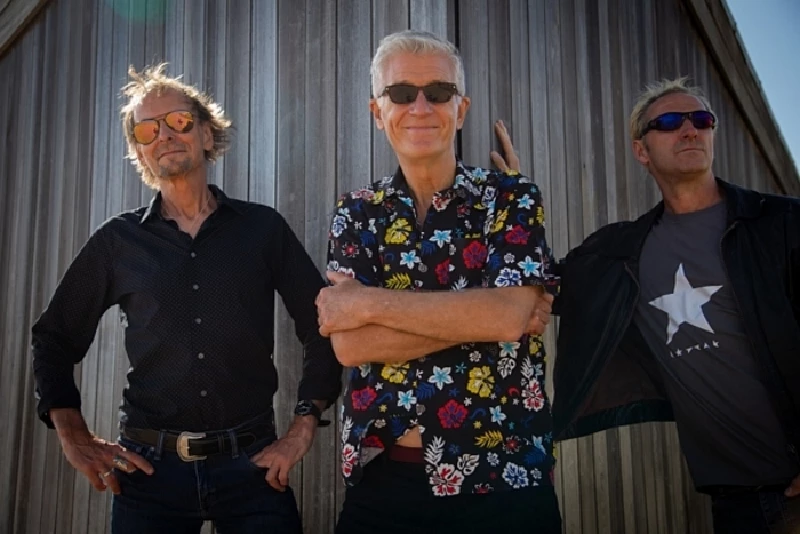
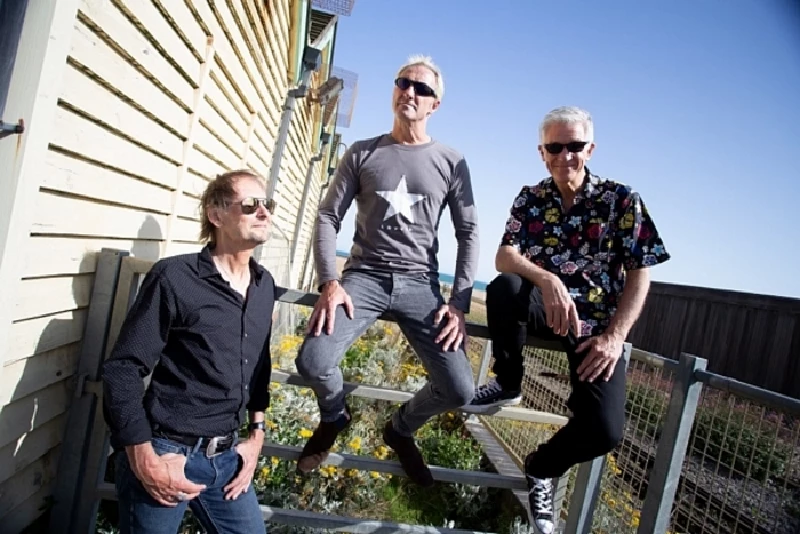
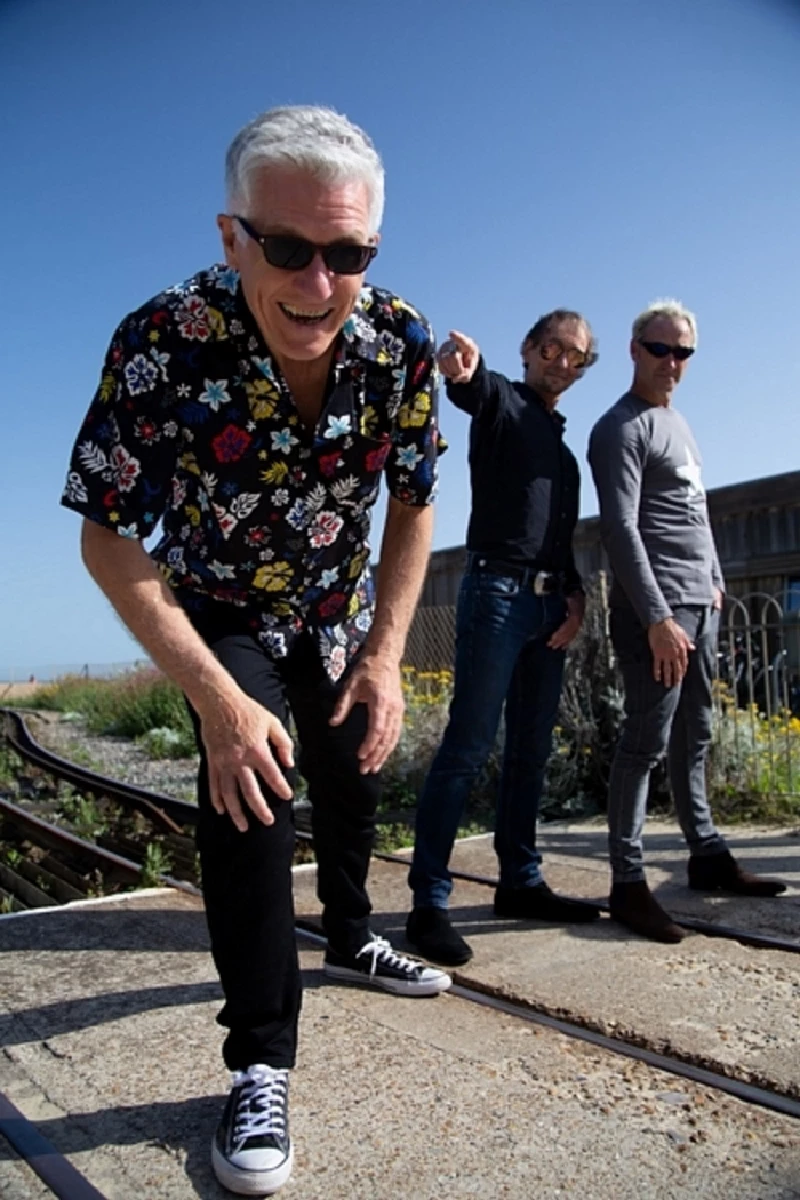
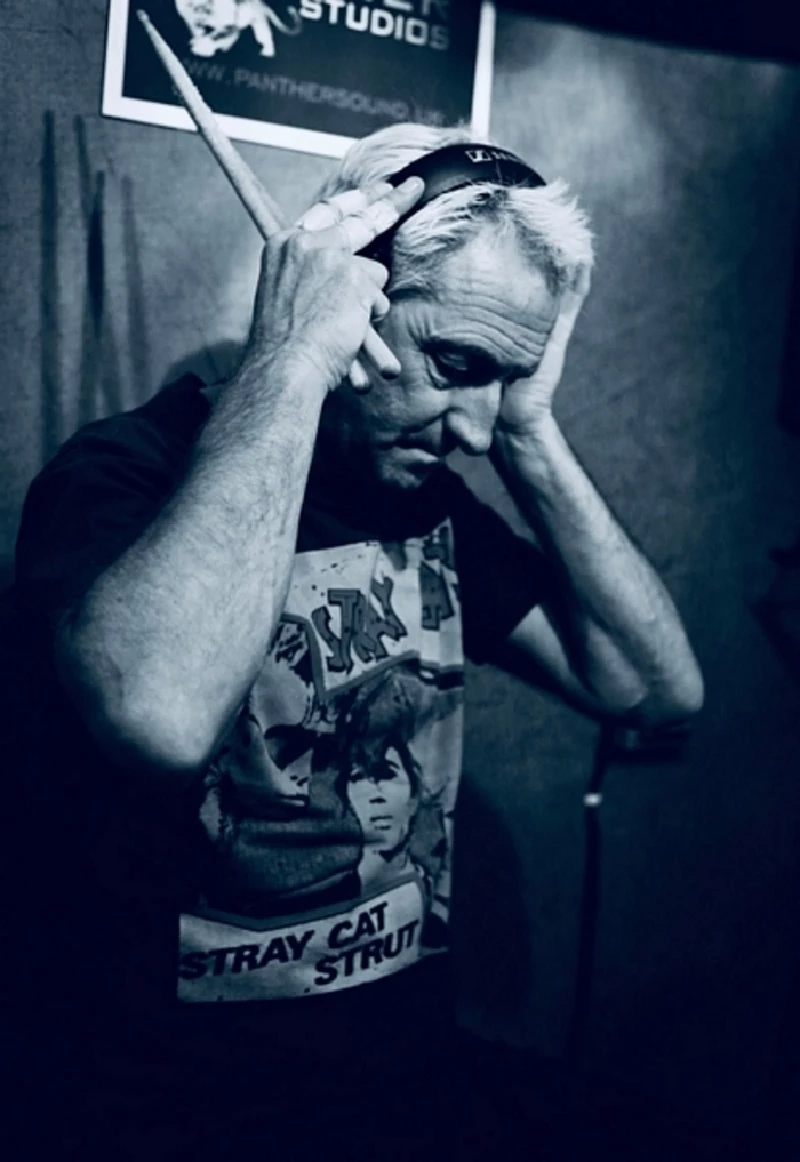
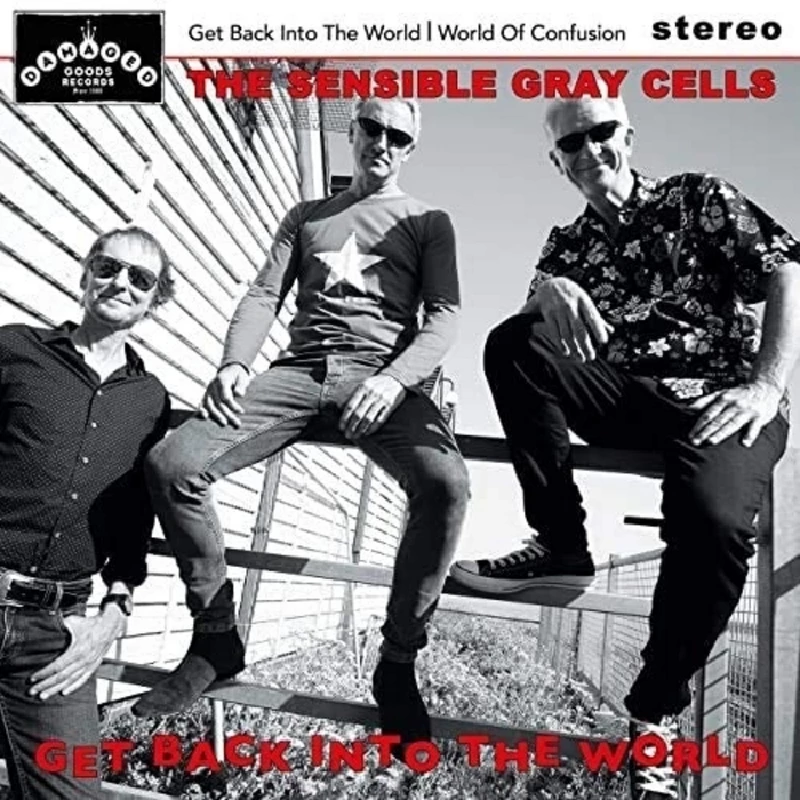
intro
Eoghan Lyng speaks to Damned guitarist Captain Sensible about 'Get Back Into The World', his second album with his project Sensible Gray Cells, and the reformation of the original line-up of the Damned next year.
profiles |
|
Captain Sensible (2009) |

|
| Helen Tipping looks at Damned guitarist Captain Sensible's first two solo albums, 1982's 'Women and Captains First' and 1983's 'The Power of Love', which have both been just been re-released by the Cherry Red label |
soundcloud
most viewed articles
current edition
Carl Ewens - David Bowie 1964 to 1982 On Track: Every Album, Every SongArmory Show - Interview with Richard Jobson
John McKay - Interview
Colin Blunstone - Thalia Hall, Chicago, 16/7/2025
Bathers - Photoscapes 1
Billie Eilish - O2 Arena, London, 10/7/2025
Loft - Interview
Visor Fest - Valencia, Spain, 26/9/2025...27/9/2025
Sir Tim Rice - Interview
Robert Forster - Interview
previous editions
Manic Street Preachers - (Gig of a Lifetime) Millennium Stadium, Cardiff, December 1999Heavenly - P.U.N.K. Girl EP
Beautiful South - Ten Songs That Made Me Love...
Peter Perrett - In Dreams Begin Responsibilities Interview Part One
Boomtown Rats - Ten Songs That Made Me Love....
Oasis - Oasis, Earl's Court, London, 1995
Coldplay - Wembley Arena. London, 16/8/2022
Prolapse - Interview
Trudie Myerscough-Harris - Interview
Pixies - Ten Songs That Made Me Love...
most viewed reviews
current edition
Davey Woodward - Mumbo in the JumboSick Man of Europe - The Sick Man of Europe
Lucy Spraggan - Other Sides of the Moon
Amy Macdonald - Is This What You've Been Waiting For?
Suzanne Vega - Flying With Angels
Blueboy - 2
Bush - I Beat Loneliness
Phew, Erika Kobayashi,, Dieter Moebius - Radium Girls
Alice Cooper - The Revenge of Alice Cooper
Cynthia Erivo - I Forgive You
Pennyblackmusic Regular Contributors
Adrian Janes
Amanda J. Window
Andrew Twambley
Anthony Dhanendran
Benjamin Howarth
Cila Warncke
Daniel Cressey
Darren Aston
Dastardly
Dave Goodwin
Denzil Watson
Dominic B. Simpson
Eoghan Lyng
Fiona Hutchings
Harry Sherriff
Helen Tipping
Jamie Rowland
John Clarkson
Julie Cruickshank
Kimberly Bright
Lisa Torem
Maarten Schiethart